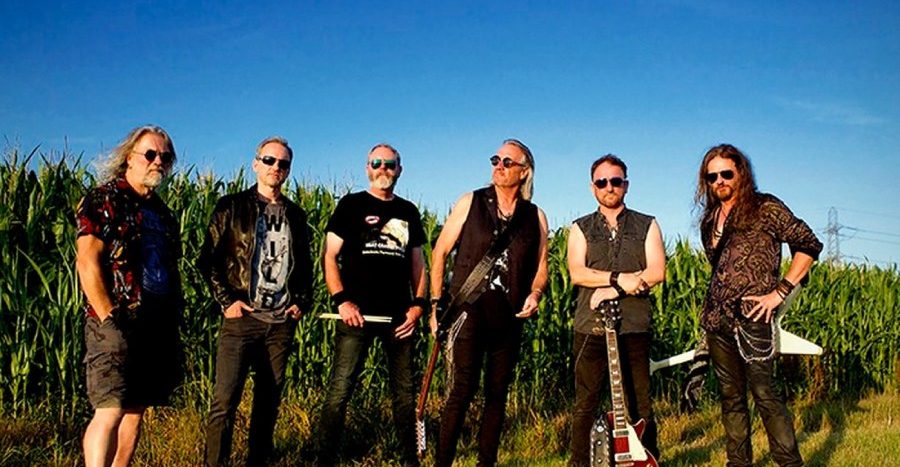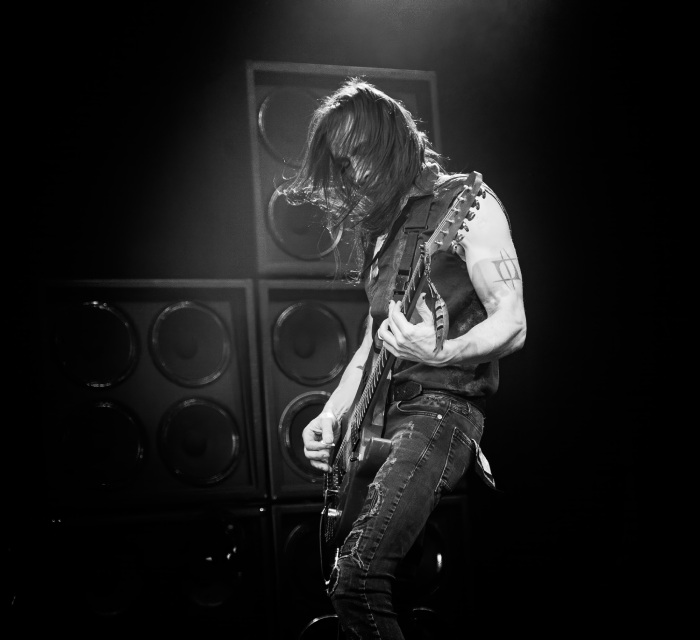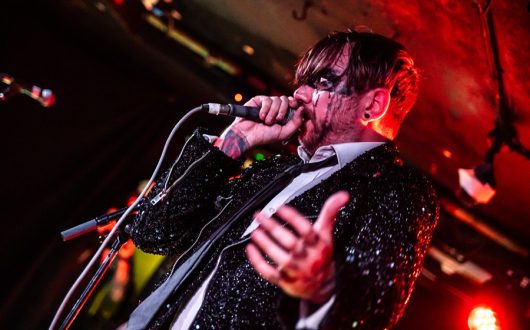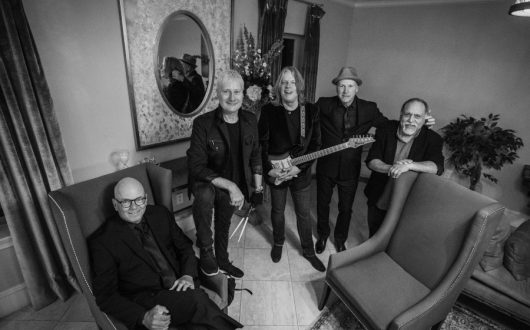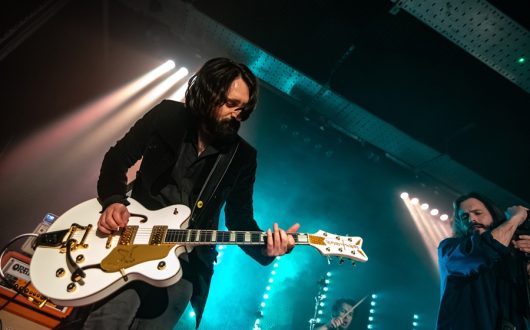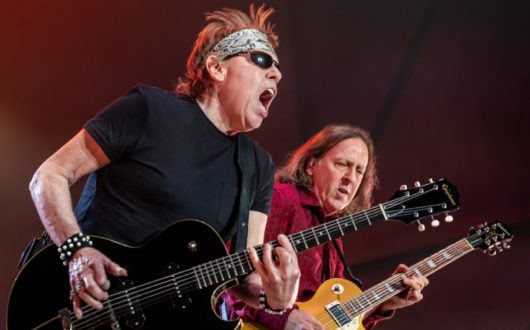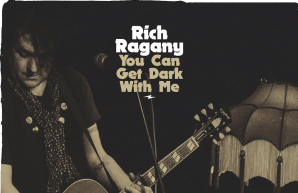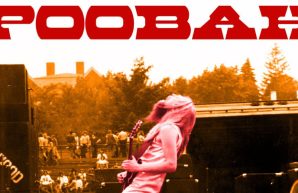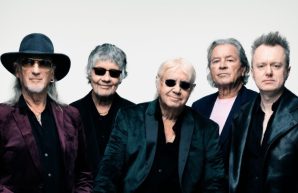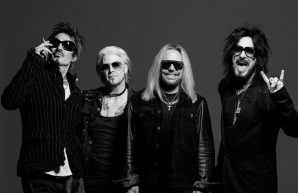Interview by: Mark Lacey
In 1974, Gypsy Kiss was founded by school friends, David Smith, and Steve Harris – playing a handful of shows in East London across 18 months – before going their separate ways. The next chapter in Steve’s career continues to be written. When David Smith was encouraged to resurrect Gypsy’s Kiss for a Clive Burr memorial concert in 2018, it reignited a passion, inspired new music, and provided an opportunity for new fans to hear music that had previously inly existed in folklore. With 2024 marking the band’s 50th anniversary, there is fresh music on the way, and some celebratory shows, with some familiar faces. David tells us more:
MGM: Some fans may or may not be aware of the Iron Maiden connection to Gypsy’s Kiss, which was Steve Harris’ first band, and the first with which he played at the now infamous Cart & Horses. That band is now celebrating it’s 50th anniversary. How would you describe Gypsy’s Kiss and what you do?
David: I suppose I’d say classic rock brought into the 2020s. Our roots are mid ‘70s classic rock. It’s the same as Iron Maiden’s, and obviously, because we come from the same source, the music we loved, and that’s still in our mind, stems from the mid ’70s. It’s the classic bands of that era, with a touch of prog rock as well, and if Steve Harris was on this call, he would say exactly the same thing. I just like to think we brought it up to date. We’ve got a line-up of three guitars and a keyboard. We still always try and do the guitar harmony things that are not Maiden inspired for us; they’re more Wishbone Ash and Thin Lizzy. A couple of years ago, we were described as classic rock with prog flourishes, which I didn’t mind at all.
MGM: When you started out Gipsy’s Kiss in the early ’70s, you were still a relatively young person, and the UK music scene was thriving. But who was the influence at that point for you?
MGM: The ones you would expect; Zeppelin, Purple, Black Sabbath, but certainly Wishbone Ash and Thin Lizzy, and the prog bands around at the time, Jethro Tull, Focus, they all had influences. But I think if you take me back a bit further, of course, the Beatles, and of course, the Stones, and of course, the ’60s bands. But those that influenced this band then and now are the trilogy of Zeppelin, Sabbath, and Purple.
MGM: The origins of Gipsy’s Kiss started at Leyton County High School.
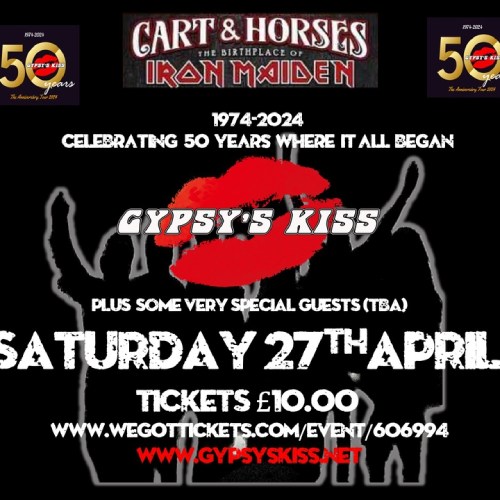
David: Steve and I were at the same school, and we lived about a mile from each other. We knew each other, not in school, and in school. He was the year below me. Interestingly, Paul Di’Anno went to the same school. I think he’s four years younger than me. He’s quite a good friend of mine now, but as ever, when you’re in school, you don’t speak to too many people a few years younger than you, so I didn’t know Paul particularly well back then. Steve and I both left school in 1973. Sometime during that summer, we got together. We both had a love for football. We both had a love for West Ham. We lived close to each other, and we had a love for rock music. He wanted to be a drummer but didn’t have drums or the room to play in. I had been playing guitar about a year or so, and we got together and said, why don’t we form a band? Initially, there was only he and I. Then we went casually to a number of other people until a line-up formed about the autumn of ’73, when we called ourselves Influence. And the line-up changed again in ’74, and the name was changed to Gipsy’s Kiss. So, the initial band was formed in ’73, but became Gipsy’s Kiss in ’74. And that band lasted in that period for about 15 months. When you’re 19, you just run out of steam. One of the reasons Steve is so successful, and I saw him a couple of months ago, and I was reminding him of this, is that he was and still is incredibly dedicated. Work, work, work, work, work ethic, whereas the other guys in the band being 19, we wanted to go out drinking and meet girls. Steve just wanted to be successful and he had a greater drive than we did at that time.
MGM: In those early days, whilst the line-up of Maiden was being fine-tuned, it looks as if he was in the pursuit of the perfect band of likeminded musicians, to mirror his own ambition.
David: I think in the very early days, he wanted to play bass guitar better. When we first got together, he didn’t play at all. He and I were together when he bought his first bass guitar, which was a Fender Telecaster copy. I think he paid about 30 quid for it. He learnt bass; he learnt very quickly, but he was refining his craft. That was what he was doing. And then onward after Maiden, absolutely. And for many years in Maiden, finding the perfect line-up.
MGM: It’s fascinating to hear that you and Steve both had music and football as your pursuits. Most people often align with one or the other, and you and Steve were successfully doing both.
David: He had a harder choice than me. We were both West Ham supporters, still are. We both played football. I will openly admit he was better than me. He was a good footballer. But when you’re that age, I think when you’re 18, the chance to make a success of being a footballer has passed. I think he always wanted to be a musician, frankly, and he always wanted to be a rock musician. He didn’t really want to do anything else. He’s incredibly dedicated guy and a very nice guy, too.
MGM: In the early days of Gipsy’s Kiss, your line-up included yourself and Steve, Paull Sears on drums, Bob Verschoyle on vocals, and Tim Nash on second guitar. Talk about me about how you met.
David: I still see Paul quite regularly actually. In the very early days, we got through a couple of drummers. We tried a second guitarist, but chose not to do it. And we rehearsed, and did some preparatory gigs. Bob knew Steve’s family, and their families were friends, so he knew Bob before I did as a friend. Paull Sears lived in Poplar in East London, and I met him through a guy who used to work with me. We were looking for a drummer, and he said, you should meet my mate Paull Sears. Paul has been a friend of mine for over 50 years. Sometimes you meet someone, and you know they’re going to be your friend for life. And Paul was that to me. The reason Bob came in is that we were rehearsing a gig, which was a couple of days away, and I had a throat infection. I played guitar but I couldn’t sing, so we brought Bob in. And actually, then for me, as a guitarist who was trying to sing as well, it was a bit of freedom for me. So, Bob stayed on singing. We took a second guitarist on called Tim Nash, who I haven’t seen for years, to come and play rhythm guitar. He was with us in the second half of the original Gipsy’s Kiss career, and so there were five of us in the latter days of it. We were playing around the emerging East London pub rock scene.
MGM: Did Gypsy’s Kiss feel like a hobby with a bit of beer money at that time, or was it something you trying to do seriously?
David: If you talked to me back then, I would say it was something I wanted to do seriously. If you’re a kid in your late teens, you either wanted to be a professional footballer or a rock star. But I didn’t quite realise how hard work it was; how lucky you had to be and how hard you had to work. We did work hard, and subsequently, post-Gipsy’s Kiss, because I did work hard doing other musical things, and still do now. But I think Steve really wanted to do it more than we did, and it showed.
MGM: It’s interesting that you mention Deep Purple as an influence. Ian Pace spoke to MyGlobalMind.com a few weeks ago, and he estimated that when Deep Purple started out in the late ‘60s, that there were close to 10,000 bands trying to play across London alone, and 40,000 musicians. Becoming the one band that breaks through takes a mixture of talent, hard work, luck, and being in the right place at the right time.
David: He’s one of the best rock drummers ever, in my humble opinion. And he’s right. In the mid ’70s, when the pub rock scene was really kicking off all over London, but for me particularly in East London, every other pub had bands on four or five nights a week. The Cart & Horses did. The Bridge House did. At all those ones that we played at, and people would know of, there were different bands on all the time. But the successful ones, were they the ones with the great musicians, and the great songs? Not necessarily. The very best ones did. But, right place, right time. I don’t think much has changed now, frankly. Meet the right people, play the right shows, get noticed by the right people who like your music. Then, yeah, you get a bit of luck.
MGM: In those early days, you were playing the Bridge House in Canning Town, the Cart & Horses and a few others. What do you remember about those shows? And what would it have felt like to be at a Gypsy’s Kiss concert back then?
David: We wanted to be an original rock band, but to get a show’s worth of original songs you don’t do overnight. So, for the early shows, we had half a dozen originals, which was about a third of the show and the other two-thirds were covers. They were songs you might expect; the songs bands still play now. Audiences these days generally go to see bands they want to see. But, back in the ’70s, people went out for a night out to see bands, and many of those pubs had resident bands or bands that kept recycling. So, you would see them regularly and you would get to like them. I was a punter going, as well as a punter playing. I would go and see bands up to four nights a week, for both learning and entertainment. But I would go to the pubs that had good music. Sometimes I wouldn’t know who was on. Our audiences were a mixture of fans, and people who liked us, but also people who just wanted to come along and be entertained by music.
MGM: There are very few pubs that still do that now, putting music on night after night. That short list includes the recent resurgence of the Cart & Horses, but also the Cavern in Raynes Park, where you also now play regularly.
David: I’m glad you mentioned the Cavern. It is one of those pubs that you could pick up and put in East London in the ’70s, and that’s what it would be like. There wouldn’t be a PA and a stage because that didn’t exist then, but it would have been like that. ‘Bands on every night. What are you doing tonight? I’m going to the Cavern. Who’s on? Doesn’t matter’.
MGM: When Gipsy’s Kiss came to an end in ’75, what did you go on to do next musically?
David: I joined a Country and Western band because it paid a lot more money. The first paycheque that Gipsy’s Kiss got was in the Cart & Horses in 1974. We earned the princely sum of £8, and a drink each. And we thought that was, wow, we’re getting paid to do this. We did that for a while. And then Gipsy’s Kiss came to its end, and I was offered the opportunity to play bass in a Country and Western band. We went from Gipsy’s Kiss, four people getting £8 between us, to me getting £25 on my own, which in 1975 was quite a lot of money. I did that for a little while, and I did some jobbing stuff with other bands. I took a bit of time off, then went back with some other bands, did some solo stuff, and I went back to doing it seriously again in the ’90s. I played in covers bands and then bands doing the hotels in Park Lane, the wedding receptions, the award ceremonies … which is great money-wise, not artistically stretching, but a lot of fun. And I was doing that pretty much up to 2020.
I’d been asked for years and years, why don’t you reform Gypsy’s Kiss? We’d only ever heard of you. What music did you do? What did it sound like? And I just thought that was years ago and nobody was interested in it and I wouldn’t want to do it. We were asked to play at Burr-fest, which was the one of about three or four charity concerts in memory of Clive. I just formed a band. Bob Verschoyle did the first one with me, and it was a lot of fun, but what really surprised me was the audience reaction. It was at Club Kolis in Archway in North London in 2018. There were two in 2019 that we played at. And then we just decided to do it again because people liked it. The pandemic hit and slowed us down a bit, but we’ve accelerated it again now. And the reason, is the audience reaction has been great.
MGM: In recent years Gypsy’s Kiss have recorded a few EPs and an album, including some of these songs from your earliest days. ‘Heat Crazed Vole’ is a fan favourite.
David: We’re going to play that at the Cart & Horses show because it feels right to do it. But we don’t play that in our set now. ‘Influence’ we still play in our set now. ‘Endless Pit’ we still play in our set now, and ‘What Went Wrong’. So, there were four songs from ’74 that I wrote at the time and we re-recorded. Some of them slightly reimagined because I’d forgotten some of the lyrics, but we went back and did them again.
MGM: Did you ever record any of those concerts back in the mid ’70s?
David: Well, now you’ve hit upon a very good point. Yes, but the only person who has those tapes, they were cassette tapes, is a certain bass player in Iron Maiden. I lost them 20-30 years ago. Paul had them and lost them, but Steve has got them. I don’t blame him for not wanting to put them in the public domain, but they were all right. They were live gigs that were recorded in a slightly amateur fashion, but the recordings were okay. But they were in ’74.
MGM: When you got the Gipsy’s Kiss back together for Burr-fest project, Bob was singing with you. At what point did you decide to keep it going, but to pull together a different lineup of musicians?
David: I pulled a lineup together of friends and people I knew from other bands, and some I played with. I asked Bob because I was friends with Bob, and I said, do you want to do it? He hadn’t sung a note or really done anything in all that intervening time, and he said, I don’t know if I’m up for it. I told him, people will love you, whatever you do. So, he did three or four songs of that set. He had a great time, he enjoyed it. But he didn’t want to pursue it regularly. He felt he’d got that out of his system. And of that line-up, apart from me, there were two other guys who are still in the band now, a keyboard player and one of the guitarists. So, three of us, Jonathan and Ross.
MGM: The original band was around 50 years ago and had a short tenure, before you resurrected it in 2018. You’re still playing some of those original songs with a different line-up, but also writing new material, and with a new album on the way. What is it about the music that you’re putting out now as Gypsy’s Kiss that has that Gypsy’s Kiss DNA to it, if you like?
David: That’s quite hard. I personally feel, as the only person who was around at that time, that the spirit is the same. It’s the guitar-orientated line-up. It’s the harmonies. It’s the classic rock feel. And what’s really good for me is that Paull Sears has come to see us a lot, and he’s saying the same thing. He said, if the original line-up had stayed together, this is the thing it would do.
MGM: Paull Sears recently spoke to MyGloblMind.com at the British Lion show at the Cart & Horses. He said he’d largely hung up his drumming boots, but he’s performed a track with you on the last Gypsy’s Kiss ’74 album.
David: I personally asked him and said, would you? Terry Wapram played guitar on that album too. Terry is a good mate. He did a great job. Paul didn’t want to do it. And I said, just do it for me. Effectively, he played second drums on ‘Traveller’, alongside Stuart Emms. Paul made a contribution and loved doing it. I have asked him since if he wants to pick up the sticks again and do something, or a guest spot or whatever. I don’t think he does. I can’t persuade him to do anything more than the occasional guest slot.
MGM: It would be quite a nice moment if he could walk out on the stage with you, even for a bit of percussion, at the Cart & Horses.
He’s going to. At the Cart & Horses gig, which is our official 50th year celebration, we’re having a support slot from ‘The Legends’, which I’m also part of, and we’re doing Maiden songs from the first two albums.
It’s all friends, so Terry Wapram and Terry Rance, two former Iron Maiden guitarists, Gypsy’s Kiss drummer, Stuart Emms, Buffalo Fish’s bass player, Dwight Wharton, myself and Carl Williams from Ironed Maiden, the tribute band, are going to do eight or nine songs from the first two albums as a warm-up. It will be a bit of a celebration, really.
MGM: What can you tell me us about your impending new album? It doesn’t have a name yet.
David: We think we’re going to call it ‘We’ve Come to Play’ as in the last single because it seems appropriate. That’s our ethos now. That’s why we do it. We’re not going to be famous. We’re not going to make money. We just like doing it.
MGM: It was good to see that you recorded a lot of the video for the ‘We’ve come to play’ single in the Cart & Horses.
David: Yeah. And it was filmed by ex-Iron Maiden guitarist Terry Wapram. He does more than play guitar.
MGM: It must be quite heartwarming for you to walk into the pub and see that you’re part of the Iron Maiden history that’s so nicely displayed across all the walls in there.
David: I’ve got pictures of me on the wall. I still blink my eyes at it. If you’d have said to me 50 years ago when we first played there, all nervous, that in 50 years’ time, Steve would be a multi-millionaire superstar, but I would have a picture on the wall of the Cart & Horses, I’d take that in an instant.
MGM: After this show, you’ve got numerous dates coming up throughout the year, including some shows with Paul Di’Anno.
David: We’re adding dates all the moment. We’re doing a couple of gigs with Praying Mantis, who are friends of ours, a super band. We’ve got about three or four festivals, some in France, and Planet Rockstock at the end of November. We’re doing four gigs with Paul. Paul is a friend. We speak a lot; mostly about football rather than music. He’s a West Ham supporter as well. Our previous single, ‘Jack for All Time’, one of my favourites, was written for Paul. He was going to record it, and I think he’d still like to record it. But it happened at the tail in the COVID and it didn’t happen. So, we recorded ourselves and it’s going to be on the next album, even though it’s been a single. Paul said it’d be great If we did some gigs together, and we’re doing four with him in August. That will be amazing for me. I like the guy enormously. He’s a fantastic performer, and if I was pressed, the first two Maiden albums are my favourites of theirs.
For more information:
Live dates:
27th April: Cart & Horses, London
11th May: The Carlisle, Hastings
16th May: The Six Six Bar, Cambridge
18th May: Vandœuvre-lès-nancy, France
21st August: Brudenell Social Club Leeds
22nd August: The Waterloo Music Bar Blackpool
25th August: The Patriot, Crumlin
26th August: The Victoria, Swindon
30th August: MEARFEST-FLAME 2024 Nuneaton
5th October: BRITISH STEEL 2024, Fismes, France
30th November: The Cavern, Raynes Park, London
